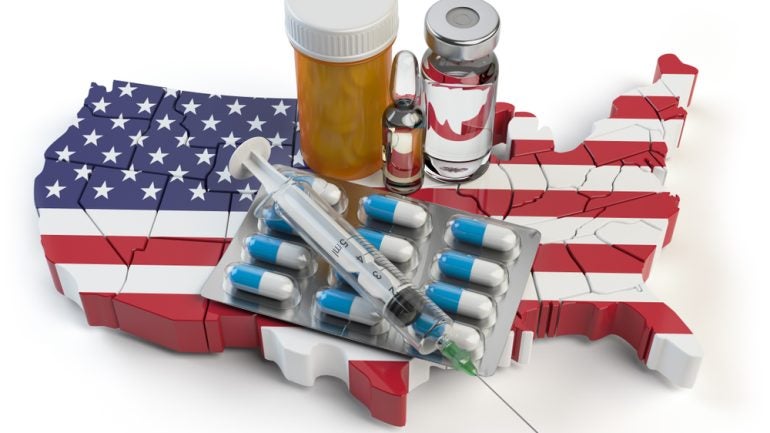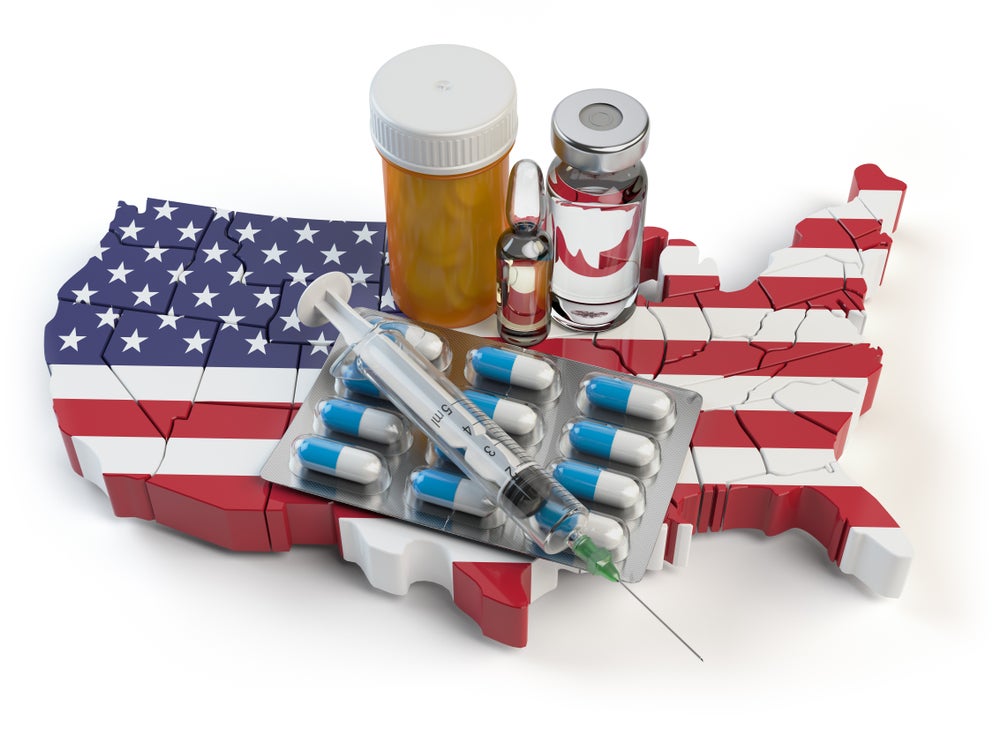The Evolving Landscape of the US Pharmaceutical Industry

The shifting geopolitical landscape in the US amid Trump’s presidency may be impacting where biotech and pharma companies choose to place their operations. Image credit: Maxx-Studio via ShutterStock.com.
Ever since its early roots, the US has been a pivotal player in the pharmaceutical industry, with key names like Pfizer, Eli Lilly, and Bristol Myers Squibb (BMS) becoming market pioneers in the mid-to-late 19th century. Today, despite the growing presence of China as a research hub, the US still leads the world in active drug development.
According to GlobalData, the US hosts the highest number of drugs actively in development globally, solidifying its position as the heart of pharmaceutical innovation. The continued prominence of the US pharmaceutical landscape reflects a complex interplay of market dynamics, regulatory changes, and geopolitical factors.
Shifting Biotech Hubs in America
Throughout its evolution, a variety of prominent biotech hubs have emerged in the US, attracting preclinical to commercial-stage companies eager to tap into top talent, infrastructure, and deal-making opportunities. Established locations such as Massachusetts, San Diego, and New York have traditionally dominated the scene, yet recent geopolitical instability has started to impact these established centers.
In H1 of 2025, even these powerful hubs faced a notable downturn in funding. The imposition of 100% tariffs on imported branded pharmaceuticals by the Trump administration—unless companies establish manufacturing facilities stateside—has been a significant driver of this shift. Pharmaceutical companies are now compelled to consider their manufacturing locations carefully, which ultimately influences their operational costs.
As a result, experts predict that this evolving landscape could lead to changes regarding where companies choose to set up shop across the United States.
Virginia: An Emerging Hub
While established hubs still garner industry interest, emerging locations, like Virginia, are increasingly vying for a stake in the pharmaceutical pie. Pharma giants such as Eli Lilly and AstraZeneca have recently invested billions in the state, signaling a burgeoning interest.
Acumen Pharmaceuticals, a Massachusetts-based biotech with strong ties to Virginia, believes that this investment could significantly bolster the state’s biotech ecosystem. CEO Daniel O’Connell recognizes that while Virginia has potential, it still needs to cultivate critical elements like talent, capital, and technology for sustainable growth.
To truly thrive, Virginia must attract a broader base of management talent, scalable capital, and additional large pharma investments. Christian Haller, VP at Keiretsu Forum, highlights the state’s proactive measures, like tax credits and cash rebates, to make Virginia an appealing place for biopharma companies.
North Carolina’s Established Presence
Contrasting Virginia’s emerging status, North Carolina boasts a more established biotech environment, complete with numerous major players like Merck, Novo Nordisk, and Johnson & Johnson. The state’s biotech scene is attracting investors who are keen on surrounding themselves with established pharma partners.
Laura Rowley, director of life science economic development at North Carolina Biotech, emphasizes that the state’s stability and business-friendly policies create an environment conducive to growth. With a corporate tax rate of only 2.25%, which is predicted to drop to 0% by 2030, North Carolina is increasingly attractive for long-term investments.
Moreover, affordable living costs and strong talent pools add to the allure of North Carolina’s biotech ecosystem.
Massachusetts: A Beacon of Biotech
In the north-east, Massachusetts continues to maintain its status as a premier biotech hub. Acumen Pharmaceuticals is headquartered in Newton, a location that O’Connell finds to be “on fire” due to its robust life sciences ecosystem. The Greater Boston and Cambridge areas are thriving ecosystems, supported by a multitude of research institutions and ample funding.
Korean biotech company Medipost also recognizes Massachusetts’ potential and has expanded its U.S. operations to Cambridge. CEO Edward Anh appreciates the region’s rich pool of experienced talent, which allows startups to build capable teams rapidly.
Yet, the future growth of Massachusetts is contingent on federal funding for NIH grants. Recent cuts in research funding could pose challenges for many Massachusetts-based biotech projects.
By highlighting the evolving landscape of biotech hubs in America, from established powerhouses to emerging regions, we can see how geopolitical dynamics and market forces shape the future of the pharmaceutical industry. The competition for talent, investment, and innovation continues, evolving along with the needs and goals of a rapidly changing global market.



